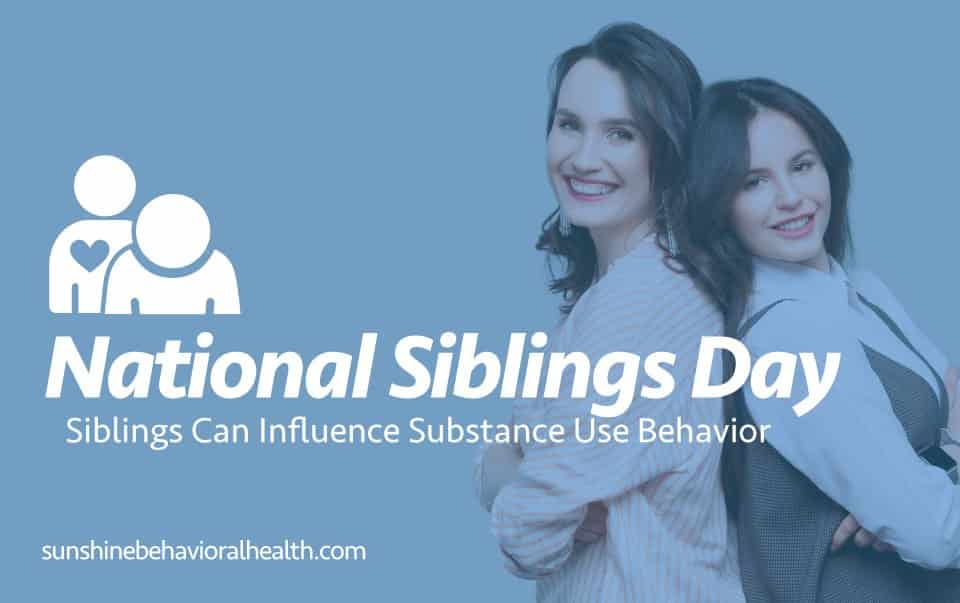
Siblings Can Influence Substance Use Behavior
In the tradition of Mother’s Day, Father’s Day, and Grandparents’ Day, April 10 is unofficially National Siblings Day. (At least it was. The organization that was campaigning for that designation seems to be defunct.) Even without a formal declaration or many greeting cards, siblings are important in many of our lives and certainly can merit celebration. Not that all relationships between brother and brother, brother and sister, or sister and sister are positive. They can be loving or destructive, supportive or enabling. For instance, whether older siblings smoke, drink, or use drugs has some influence on the younger siblings’ behavior, but not as much as influences they have in common, such as their parents. Some of that may be genetic—addiction is somewhere between 40% and 60% due to heredity—but their behavior is also a big driver. This suggests that treating an adolescent with an addiction also requires examining the family relationships, including brothers and sisters. Non-sibling peers can also be a factor, as can normal teen rebellion. Biology is not destiny, however, and neither is observed behavior. You can stop abusing drugs and alcohol, even if your parents or big brother or sister set bad examples. In the case of an alcoholic parent or parents, siblings might present an alternative role model to counter the adult’s. Sources sunshinebehavioralhealth.com – 11 Family Roles in Addiction nber.org – Identifying Sibling Influence on Teenage Substance Use ncbi.nlm.nih.gov – Sibling influences on adolescent substance use: The role of modeling, collusion, and conflict health.harvard.edu – How addiction hijacks the brain prweb.com – Siblings Day Foundation Announces: Siblings Day to be Celebrated in the U.S. and Worldwide on April 10A Message From Our CEO
Medical disclaimer:
Sunshine Behavioral Health strives to help people who are facing substance abuse, addiction, mental health disorders, or a combination of these conditions. It does this by providing compassionate care and evidence-based content that addresses health, treatment, and recovery.
Licensed medical professionals review material we publish on our site. The material is not a substitute for qualified medical diagnoses, treatment, or advice. It should not be used to replace the suggestions of your personal physician or other health care professionals.





